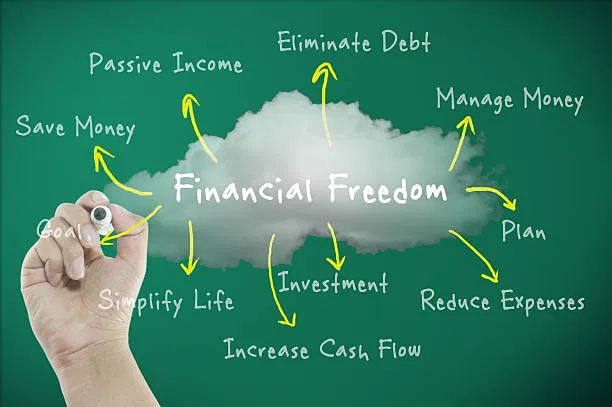Managing your finances can often feel overwhelming, especially with the flood of advice available online, from self-proclaimed money gurus to social media influencers. But not all financial tips are created equal. Some sound great in theory but don’t hold up in real life. Others, however, have been time-tested and proven to make a measurable difference in people’s financial health.
In this article, we break down finance tips that truly work in the real world, regardless of your income, lifestyle, or financial goals. Whether you’re trying to escape debt, save for a home, or just feel more in control of your money, the advice below is both practical and effective.
Key Takeaways
- Budgeting is the foundation of financial control.
- Emergency funds provide essential protection.
- Saving first builds discipline and future security.
- Debt management is crucial to avoid financial strain.
- Early investing leverages time and compound growth.
- Tracking your net worth keeps you focused.
- Financial education pays the highest returns.
Create and Stick to a Budget
Why It Works: A budget gives you visibility and control over your money. It ensures you don’t spend more than you earn and helps you allocate funds toward your goals.
Real-Life Application: Use the 50/30/20 rule (50% needs, 30% wants, 20% savings/debt repayment) or budgeting tools like Mint, YNAB, or Excel to track income and expenses.
Pro Tip: Automate tracking through banking apps to eliminate manual entry and stay on top of spending trends.
Build an Emergency Fund
Why It Works: Life is unpredictable. An emergency fund protects you from unexpected expenses like medical bills, car repairs, or job loss without turning to high-interest credit cards.
Real-Life Application: Start small. Aim for $500 to $1,000 first, then build up to 3–6 months of living expenses.
Pro Tip: Keep this fund in a high-yield savings account to earn interest while maintaining liquidity.
Pay Yourself First
Why It Works: Prioritizing savings forces you to live on what’s left rather than saving what’s left after spending. This accelerates wealth-building.
Real-Life Application: Set up automatic transfers to savings or investment accounts as soon as your paycheck arrives.
Pro Tip: Treat savings like a non-negotiable bill.
Cut Unnecessary Subscriptions and Expenses
Why It Works: Small recurring charges add up over time and often go unnoticed.
Real-Life Application: Conduct a monthly audit of your subscriptions (streaming, apps, gym memberships) and cancel what you don’t use.
Pro Tip: Use subscription tracker apps like Truebill or Rocket Money.
Use Credit Responsibly and Pay Off Debt
Why It Works: Interest on credit cards and loans can eat up your income. Reducing debt improves cash flow and credit score.
Real-Life Application: Use the debt snowball (smallest debt first) or avalanche (highest interest first) method.
Pro Tip: Consider refinancing or consolidating high-interest debt to lower your monthly payments.
Invest Early and Regularly
Why It Works: Thanks to compound interest, the earlier you invest, the more your money grows.
Real-Life Application: Open a retirement account (like a PPF, NPS, or Roth IRA) or invest in index funds through SIPs (Systematic Investment Plans).
Pro Tip: Start with what you can afford, even if it’s just $50 a month.
Track Your Net Worth
Why It Works: Net worth offers a holistic view of your financial progress, considering assets and liabilities.
Real-Life Application: Use tools like Personal Capital or a spreadsheet to monitor growth over time.
Pro Tip: Update your net worth quarterly to stay motivated and aligned with your goals.
Live Below Your Means
Why It Works: This habit builds financial resilience and provides flexibility during downturns.
Real-Life Application: Buy used when possible, avoid lifestyle inflation, and prioritize needs over wants.
Pro Tip: Every raise should partially go toward savings, not just increased spending.
Set Clear Financial Goals
Why It Works: Goals provide direction, motivation, and a sense of purpose for your money.
Real-Life Application: Set SMART goals (Specific, Measurable, Achievable, Relevant, Time-bound).
Pro Tip: Break large goals into smaller, achievable milestones.
Educate Yourself Continuously
Why It Works: Financial literacy empowers you to make smarter decisions.
Real-Life Application: Read personal finance books, follow credible blogs, take courses on Udemy or Coursera.
Pro Tip: Schedule 30 minutes each week to learn something new about money.
Can You Achieve Financial Freedom Without a High Income?
Description:
Explore the misconception that only high earners can reach financial independence. This article would cover strategies like aggressive saving, frugality, side hustles, minimalism, and long-term investing. Include case studies of average earners who retired early or reached major financial milestones.
What Are the Most Common Budgeting Mistakes and How to Avoid Them?

Description:
Detail the top budgeting errors (e.g., underestimating expenses, not accounting for irregular income, skipping emergency savings) and how readers can fix them. Provide sample budgets, tools, and templates to create a realistic and sustainable budget.
How Can You Build Wealth on an Average Salary?
Description:
Break down how everyday earners can build significant net worth over time with smart choices: living below means, investing early, cutting lifestyle inflation, and leveraging employer benefits. Include realistic financial paths and investment calculators.
Is It Better to Rent or Buy a Home in 2025?
Description:
A detailed comparison guide with pros, cons, and cost-benefit analysis of renting vs. owning based on different income levels and city tiers. Include updated interest rates, loan criteria, rent vs. mortgage calculators, and tips for both paths.
How Do You Create a Bulletproof Emergency Fund?
Description:
Step-by-step advice on how to build and maintain a safety net, including savings goals, where to keep the money (e.g., high-yield savings accounts), and how much you need depending on lifestyle and income type (freelance vs. salaried).
Are You Investing the Right Way for Your Age Group?
Description:
Break down smart investment strategies by decade (20s, 30s, 40s, 50s, 60s+), including risk tolerance, retirement planning, and asset allocation. Include case examples and charts showing compound growth potential over time.
What Are the Most Powerful Habits of Financially Successful People?
Description:
Highlight real-life financial habits like delayed gratification, goal setting, routine reviews of spending, and financial journaling. Back it up with behavioral finance principles and quotes from successful investors or entrepreneurs.
Can Side Hustles Really Transform Your Financial Life?
Description:
Evaluate whether side hustles are worth the time and energy. Feature top options in 2025 (freelancing, e-commerce, tutoring, etc.), real income potential, how to balance with a full-time job, and how to legally and financially manage side income.
How to Master Your Credit Score and Why It Matters More Than You Think?
Description:
A deep dive into credit score components, how they’re calculated, and specific actions that improve or hurt your score. Include strategies for boosting your score quickly, repairing damage, and how credit affects loan eligibility and interest rates.
What Financial Moves Should You Make Before Turning 30, 40, 50, and Beyond?
Description:
A decade-by-decade personal finance checklist that helps readers prepare for life’s biggest financial moments—buying a home, saving for college, retiring, estate planning, and more. Include goals, ideal net worth benchmarks, and suggested investment moves.
How Do You Break Free from the Paycheck-to-Paycheck Cycle?
Description:
Focus on practical steps to stop living paycheck-to-paycheck, including budgeting techniques, emergency savings, boosting income, and eliminating unnecessary expenses. Include real-life examples, psychological insights, and action plans.
Is Your Money Safe in the Digital Age? A Guide to Financial Cybersecurity
Description:
Teach readers how to protect their money from digital threats—phishing, identity theft, and online banking fraud. Cover the importance of secure passwords, multi-factor authentication, credit monitoring, and insurance for cyber risks.
What Is the True Cost of Debt, and How Can You Escape It?
Description:
Explain how interest compounds against consumers, making debt costly over time. Include visual charts of debt payoff scenarios, emotional and financial consequences of debt, and strategies to eliminate or reduce it quickly.
How Can Couples Manage Money Without Conflict?
Description:
Dive into relationship-based finance—budgeting as a couple, managing joint vs. separate accounts, setting shared goals, and handling income imbalances. Include real advice from financial counselors and psychologists.
Should You Follow the FIRE Movement (Financial Independence, Retire Early)?
Description:
Explore the philosophy, math, pros, and lifestyle changes behind FIRE. Break down saving rates (50%+), lean vs. fat FIRE, and whether early retirement is realistic for average earners. Include success stories and criticisms of the movement.
Is Buying a Car Still a Smart Financial Decision in 2025?

Description:
Compare buying new, used, leasing, or ride-sharing. Cover car depreciation, financing costs, insurance, and the rise of EVs (electric vehicles). Provide financial calculators to help users make cost-effective decisions.
How Can Students Build Strong Finances While Still in School?
Description:
A financial roadmap for students—budgeting on campus, avoiding student loan pitfalls, using credit wisely, and starting investments early. Include resources for scholarships, part-time income, and financial literacy apps.
How to Build Multiple Streams of Income Without Burning Out
Description:
Guide readers on diversifying income through side gigs, dividends, digital products, and rental income. Offer productivity tips, automation tools, and legal/tax considerations for managing multi-source earnings.
Are You Financially Ready for a Major Life Change (Marriage, Baby, Relocation)?
Description:
Help readers assess and prepare financially for major life milestones. Cover costs, savings buffers, insurance needs, and lifestyle adjustments required for events like starting a family, moving abroad, or starting a business.
How Can You Maximize Your Tax Refund (or Minimize What You Owe)?
Description:
Provide tax planning strategies such as maximizing deductions, tracking expenses, investing in tax-saving instruments, and optimizing filing status. Include tips for freelancers and small business owners.
How to Build a Financial Plan That Adapts to Life Changes
Description:
Life is unpredictable—marriage, career shifts, kids, illness, or retirement can dramatically alter financial needs. This article explains how to build a flexible, dynamic financial plan that evolves with you. Discuss emergency planning, rebalancing investments, adjusting goals, and using financial milestones to reassess your plan every few years.
What Are the Smartest Ways to Use a Credit Card Without Falling Into Debt?
Description:
Explore the dual nature of credit cards: powerful financial tools or dangerous traps. Cover how to use them for cashback, rewards, credit score improvement, and travel perks—while avoiding debt traps like minimum payments, interest accumulation, and impulsive purchases. Include examples of good vs. bad credit habits.
How Do You Retire Comfortably Without a Pension?
Description:
In a world where pensions are disappearing, help readers understand how to self-fund their retirement using 401(k)s, IRAs, NPS, mutual funds, and real estate. Discuss how much to save, where to invest, how to calculate retirement needs, and how to withdraw sustainably in retirement.
How to Create a Wealth-Building Strategy in Your 30s, 40s, and 50s
Description:
Break down wealth-building tactics tailored to each age group. In your 30s: high growth and risk tolerance. In your 40s: peak earning and aggressive investing. In your 50s: wealth preservation and preparing for retirement. Include tips on taxes, insurance, estate planning, and common mistakes to avoid at each stage.
What Is Lifestyle Inflation and How Can You Avoid It?
Description:
Explain how increasing your spending as your income grows can sabotage long-term financial success. Provide practical strategies to resist lifestyle creep—such as setting savings goals, automating investments, and practicing gratitude. Include mindset shifts and real-world scenarios of people who resisted vs. gave in to lifestyle inflation.
Is Real Estate Still a Smart Investment in 2025?
Description:
Analyze the pros and cons of real estate investing in today’s climate: rising interest rates, high property prices, and evolving rental laws. Cover strategies like REITs, rental properties, commercial real estate, and house hacking. Include ROI calculations, risk management, and location-based insights.
How to Teach Financial Literacy to Your Kids (And Why It Matters Now More Than Ever)
Description:
Help parents raise financially smart children by teaching basic money concepts early—saving, budgeting, needs vs. wants, and investing. Include age-by-age financial lessons, games, books, and tools for kids. Highlight the long-term impact of early financial education on adult success.
Can You Beat Inflation Without Taking Big Risks?
Description:
With inflation rising globally, this article covers safe ways to preserve and grow wealth. Discuss inflation-beating investments like stocks, mutual funds, real estate, inflation-protected bonds, and gold. Include conservative strategies for retirees and moderate-risk options for working professionals.
How to Turn Financial Stress into Financial Strength

Description:
Explore the psychological side of money—how debt, low savings, or income instability create anxiety. Offer mindset strategies, emotional budgeting techniques, journaling prompts, financial therapy insights, and stories of people who overcame stress by taking control. Combine emotional wellness and financial literacy.
What Role Does Insurance Play in a Strong Financial Plan?
Description:
Too often, insurance is ignored in personal finance conversations. This article explains how insurance—health, life, disability, property, and liability—is a core pillar of financial planning. Help readers understand how the right coverage protects wealth, prevents disaster, and enables peace of mind. Include coverage checklists and policy comparisons.
How to Create a Monthly Money Routine That Actually Works
Description:
Most people don’t track their finances consistently. This article outlines how to build a monthly financial check-in routine—reviewing your budget, checking credit reports, updating net worth, reviewing investments, and planning the month ahead. Include templates and tips for building this into a lasting habit.
What Are the Most Costly Financial Myths You Still Believe?
Description:
Many people fall for myths like “Renting is throwing money away” or “Credit cards are bad.” This article debunks 10+ popular finance myths with real-world examples, data, and expert insights. Educate readers on how believing these myths can hold them back from wealth-building.
How to Design a Personal Finance System That Runs on Autopilot
Description:
Teach readers how to automate every part of their finances—from income deposits to bill payments, savings contributions, debt repayments, and even investments. Include tool recommendations, flowcharts, and how automation reduces decision fatigue and increases financial discipline.
What’s the Best Way to Financially Prepare for a Recession?
Description:
Recessions can wipe out savings and investments if you’re not prepared. This guide will cover how to strengthen your finances for economic downturns—building cash reserves, reducing expenses, diversifying income, and adjusting investments. Include recession-proof job sectors and psychological strategies.
How Can Freelancers and Gig Workers Master Their Finances?
Description:
Freelancers and gig workers often face income instability, lack of employer benefits, and complicated taxes. This article addresses budgeting with variable income, paying quarterly taxes, building an emergency fund, and saving for retirement without a traditional 9–5 structure.
What Are the Hidden Fees That Are Draining Your Bank Account?
Description:
From ATM charges to overdraft fees and investment fund expenses, this article dives into the hidden costs most people ignore. Provide a list of common financial fees and strategies to eliminate or minimize them, saving readers hundreds (or thousands) per year.
Should You DIY Your Finances or Hire a Professional?
Description:
Many people wonder if they should hire a financial advisor or manage everything themselves. Compare the pros and cons of both approaches. Discuss when it’s worth paying for expert advice and how to vet trustworthy financial planners (fee-only vs commission-based).
How to Create a Wealth Legacy for the Next Generation
Description:
Focus on long-term generational wealth. Cover estate planning, wills, trusts, insurance, investment accounts for kids, and teaching financial values. Include real-world examples of families that successfully passed on wealth—and those who didn’t.
What Financial Tools Should Everyone Be Using in 2025?
Description:
Offer a comprehensive guide to the best apps, calculators, spreadsheets, and platforms to manage money in 2025. Categorize tools by use: budgeting, investing, debt payoff, retirement planning, and net worth tracking. Review each tool’s pros, cons, and costs.
How Can You Reach Your First $100,000 in Savings or Investments?
Description:
Reaching the first $100K is often the hardest and most Significant milestone in wealth building. This article covers strategies to build your first $100K faster—cutting expenses, boosting income, investing wisely, and avoiding debt. Include motivational charts showing compound growth from $100K onward.
Also read : What Is the Best Way to Learn Finance as a Beginner?
Conclusion
Financial success isn’t about flashy gimmicks or secret tricks. It’s about consistency, discipline, and making smart choices every day. The finance tips shared above aren’t just theoretical — they’re rooted in real-world application, helping millions take control of their money and build a secure future.
Whether you’re just starting your financial journey or fine-tuning your strategies, these tried-and-true tips can pave the way to long-term financial wellness. You don’t need to be rich to follow them. You just need the right mindset and commitment to act.
FAQs
What is the most important finance tip to follow first?
Start with creating a budget. Without knowing where your money goes, it’s hard to make progress.
How much should I save each month?
Aim for at least 20% of your income, but even 5-10% is a good start. The key is consistency.
Is investing risky for beginners?
Yes, but risk can be managed by investing in diversified, long-term vehicles like index funds or SIPs.
Can I manage finances without a financial advisor?
Absolutely. With the right tools, knowledge, and discipline, anyone can manage their own finances.
How long does it take to see results from budgeting?
Most people see noticeable changes within 1–3 months. Improved savings and reduced stress are common benefits.
What’s better: paying off debt or saving?
Do both if possible, but prioritize high-interest debt while maintaining an emergency fund.
Do finance tips differ based on income level?
The principles are the same, but strategies may vary. High earners may focus more on investing, while lower-income earners may prioritize budgeting and debt control.


